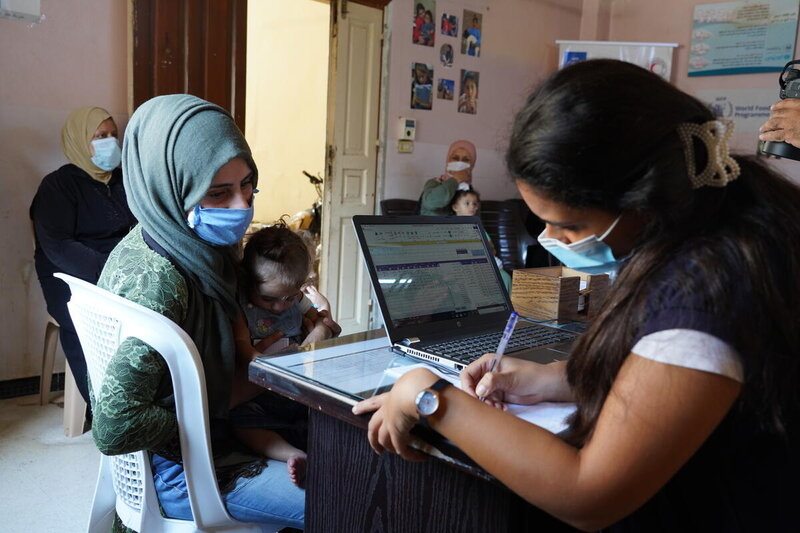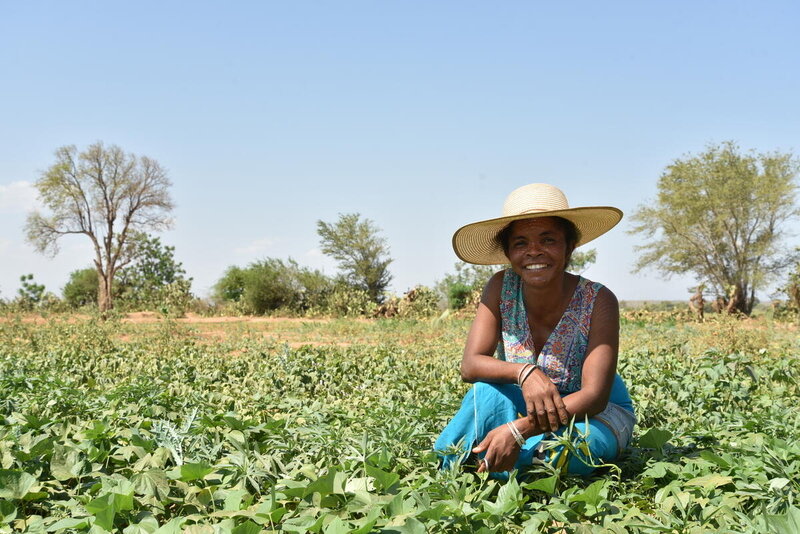The last rains were in April. For the past two years, the water that planting and harvests depend on has not arrived in October, putting the futures of children including Odile’s in question.
Hers is a sad story and an all too common one across the island nation off the southern coast of Africa, which is struggling with extreme weather linked to climate change – 1.1 million people are suffering from hunger, with nearly 14,000 people in “famine-like conditions” – a figure expected to double by the end of the year.

In the south of Madagascar, many people are subsistence farmers who’ve lost their livelihoods as well as their only source of food due to erratic weather.
The World Food Programme (WFP) is at the forefront of the United Nations system in sharing information with its member states and the general public, and is committed to demonstrating effectiveness and efficiency. WFP shares information through various channels, including its public website and shares more details in its , which can be accessed by governments.
Annual Reports
The focuses on what WFP has achieved. It details how WFP used the resources entrusted to it in any given year consistent with its mandate and in support of expected programmatic and management results. The publicly available provides a global overview of key results of WFP’s performance in terms of beneficiaries reached, food and cash-based transfers, capacity strengthening, service delivery and related direct expenditures. Furthermore, WFP Country Offices produce (ACR) to inform donors how their funds were used in specific countries during the reporting year. This includes an annual financial report covering all activities in the country portfolio.

Annual Accounts
WFP publishes audited financial reports, the , that are audited by the auditor general (or equivalent position) of a member state of the UN or FAO. In addition to certifying the accounts of WFP, the external auditor has authority to report to the Board on the efficiency of financial procedures and the general administration and management of WFP. The audit of the WFP accounts is conducted in accordance with the International Standards of Auditing. The most recent accounts were audited by the French Cour des Comptes and received an unqualified audit opinion.

Internal Audit
The Office of the Inspector General of WFP conducts objective and independent assurance and oversight activities to protect the integrity, efficiency and effectiveness of WFP’s programmes and operations, and detects and deters fraud, waste and abuse through internal audit, advisory services, inspections, and investigations. Internal audits are carried out in conformance with the Institute of Internal Auditors’ International Standards for the Professional Practice of Internal Auditing. Internal audit reports issued by the Office of the Inspector General and are . The Office of the Inspector General also publishes an providing its assessment, based on the scope of the work undertaken, of the effectiveness of WFP’s governance, risk management and control processes.
Kisimba Emedi remembers waking to sounds of gunfire edging closer to her home in the southeastern village of Tundwa, in the
“We knew we had no time to lose,” she says as she prepares fish for dinner for her children, whom she “grabbed … and ran into the forest” on that night of terror.
Gunshots rang out and the adults were on edge, fearing that the smaller children might cry out and give away their hiding place. The only option was to flee.

Kisimba’s story is hauntingly familiar across DRC, where protracted violence has uprooted millions from their homes – including hundreds of thousands in the southeastern Tanganyika province. Intercommunal conflicts have grown in intensity in recent years, leaving a trail of burned-out villages and looted crops. The country has Africa’s highest number of internally displaced people.
The unrest has also deepened hunger and malnutrition in the region, forcing families to abandon their farms and other sources of livelihood.
But today, some, like Kisimba, are building back their lives, partly thanks to cash provided by the World Food Programme (WFP) – cash is a form of humanitarian assistance developed to empower people to buy the foods and essentials they need.
“Along with helping us put food on the table, the great thing about cash is that it enabled us to prioritize our needs and build for the future,” says Kisimba. “If we had received food, I may have been tempted to sell some to address our other needs.”

After the attack five years ago, Kisimba and her husband led their family to the relative safety of Kalemie, a port town on the shores of Lake Tanganyika.
During the difficult journey, they ate only the scarce food they could find along the way. In Kalemie, however, the couple quickly realized that without their own plot of land, and the support of relatives, they were going to have a hard time.
“We had been used to feeding the children from the crops we grew,” says Kisimba of her extended family – she is also responsible for nieces and nephews whose parents were unable to feed them. “In Kalemie, the only work we were able to find was manually crushing stones. My husband and I crushed stones from dawn to nightfall, while my eldest daughter looked after the other children.” Small-scale construction sites in the DRC depend on stones crushed manually for aggregate.
Even though they were working all day, every day, they weren’t earning enough to eat.
“We ended up eating just cassava leaves with salt,” says Kisimba – cassava is a popular root vegetable, whose root is consumed for starch and whose leaves are boiled into a sauce. “The children started to look sick all the time”, and still complained of being hungry.
The couple were left with no choice but to return to their village. They arrived in Tundwa exhausted and weak and found their worst fears confirmed.
“The house had been burned down,” says Kisimba. “Everything was gone — the crops, the animals we had, the cooking pots.
“We were again surviving on cassava leave – but at least we were home and we felt more hopeful.”
Neighbours who had also returned helped with food.



